Research in Wagawaga, January 2022
Report by Nuegu Billy
The Wagawaga people live in the Bay area of Milne Bay Province. Traditionally they depended on fish, sago, and vegetables from their gardens. They engaged in traditional expeditions to exchange vegetables for fish, necklaces, armbands, and clay pots with the outlying islands. The Wagawaga language is an Austronesian language, which is spoken by no more than a thousand people. Christianity has had a great influence on the people. Their lives are based on the Christian principles which were introduced by the London Missionary Society, the first missionaries to arrive on the shores of Wagawaga over a hundred years ago.
Nuegu Billy researched the Wagawaga recordings of the True Echoes project. He received his diploma in secondary-school teaching from Goroka Teacher’s College (now University of Goroka), in Eastern Highlands Province of Papua New Guinea. He later graduated from the University of Papua New Guinea with an Arts Degree and went on to complete a Master’s degree in applied linguistics at the Victoria University of Wellington, New Zealand. Nuegu started off as a secondary-school teacher, and later worked for the National Department of Education as the Principal Curriculum Officer for Language and Literacy. He taught at the University of Papua New Guinea for 38 years before retiring at the end of 2021.
Recordings
Bobby Douglas at Wagawaga Village
Recorded on 3 January 2022
(4 minutes 8 seconds)
An interview with Bobby Douglas at Wagawaga village, 3 January 2022.
Interview with Dalume Falaniki at Wagawaga village
Recorded on 3 January 2022
(35 seconds)
Historical Recordings
The following cylinders were researched by Nuegu Billy from the Daniels Ethnographical Expedition to British New Guinea 1904 Cylinder Collection (C62).
| British Library shelfmark | Recording title | Performer name | Recording location | Recording date | Content description | Performer description | Recording notes | Languages | Genre | Recordist | Recording length | Recording trip | Description of cylinder | Collection title | Cylinder location | Images of cylinder containers / documentation | Related print publication: | Related print publication: | Related print publication: | Related print publication: | Related print publication: | Related print publication: |
|---|---|---|---|---|---|---|---|---|---|---|---|---|---|---|---|---|---|---|---|---|---|---|
| C62/1443 | Damorea Waga Waga | Unidentified (singer, male) | Waga Waga, Milne Bay, British New Guinea | October 1904 | 1. Announcement "Damorea. A Waga Waga song, sung at the Toreha by Wiri [?]." 2-3. Unaccompanied male vocal solo. A song sung at a funeral feast. | Good quality recording. | Wagawaga | Field recordings; Laments | Seligman, Charles Gabriel | 3'10" | Daniels Ethnographical Expedition to New Guinea 1904 | Brown wax cylinder | Daniels Ethnographical Expedition to New Guinea 1904 Cylinder Collection (C62) | British Library | 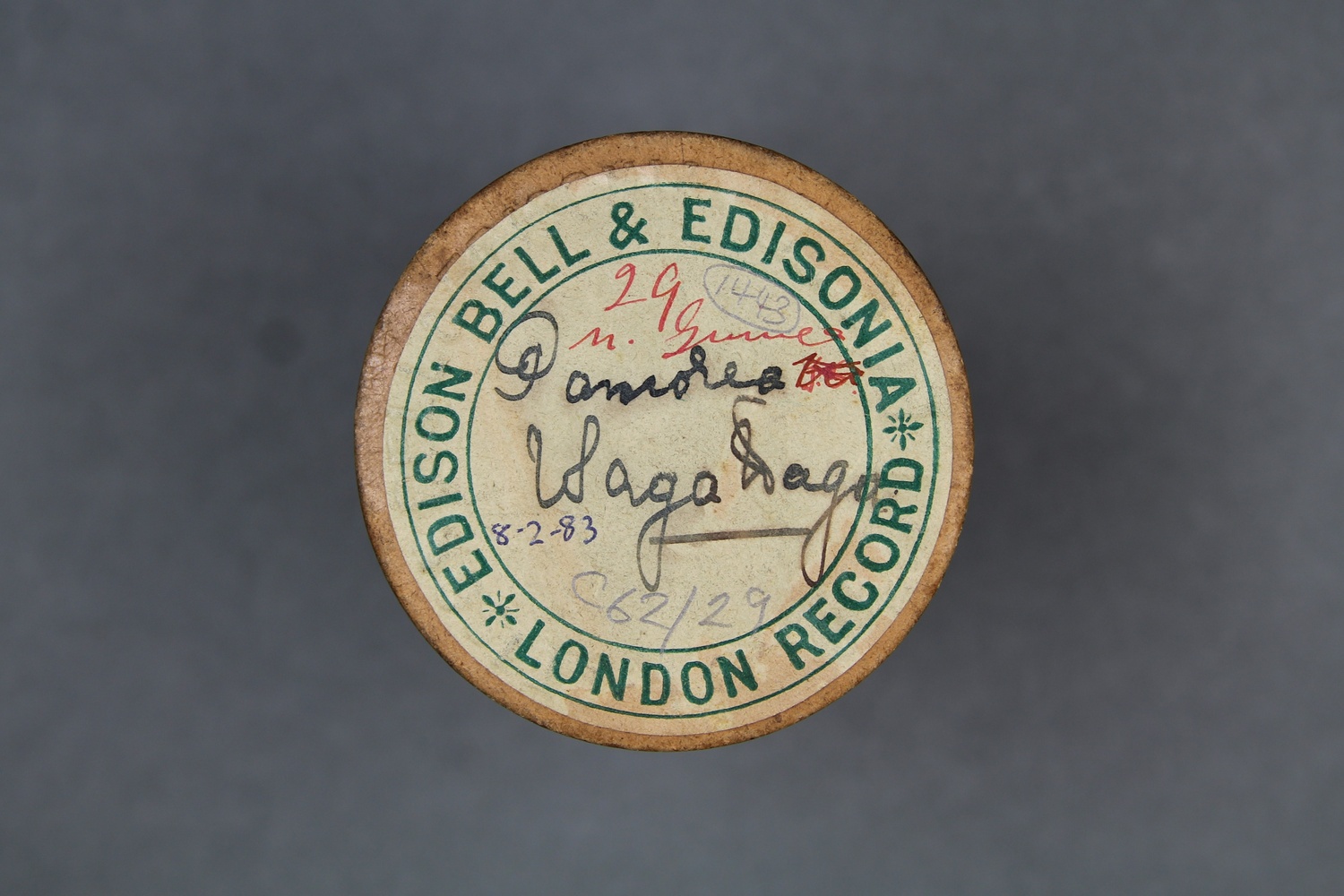      | This song is transcribed in Charles G. Seligmann, 'The Melanesians of British New Guinea', Cambridge University Press, 1910:587. | ||||||
| C62/1444 | Kwabiai Waga Waga | Unidentified (singer, male) | Waga Waga, Milne Bay, British New Guinea | October 1904 | 1. Announcement: "Kwabiaia, a Waga Waga song." 2. Unaccompanied male vocal solo (with some laughter). | Reasonable quality recording but short duration and some distortion. | Wagawaga | Field recordings | Seligman, Charles Gabriel | 1'47" | Daniels Ethnographical Expedition to New Guinea 1904 | Brown wax cylinder | Daniels Ethnographical Expedition to New Guinea 1904 Cylinder Collection (C62) | British Library |       | This song is transcribed and translated in Charles G. Seligmann, 'The Melanesians of British New Guinea', Cambridge University Press, 1910:588. | ||||||
| C62/1445 | Nuauuro Waga Waga | Unidentified (singer, male); unidentified (percussion) | Waga Waga, Milne Bay, British New Guinea | October 1904 | 1. Announcement: "..., a Waga Waga song." 2. Male vocal solo with percussion accompaniment. The first part of the Nuauuro song. | Reasonable quality recording but with weak signal and surface noise due to cracked cylinder. | Wagawaga | Field recordings | Seligman, Charles Gabriel | 2'52" | Daniels Ethnographical Expedition to New Guinea 1904 | Brown wax cylinder | Daniels Ethnographical Expedition to New Guinea 1904 Cylinder Collection (C62) | British Library | 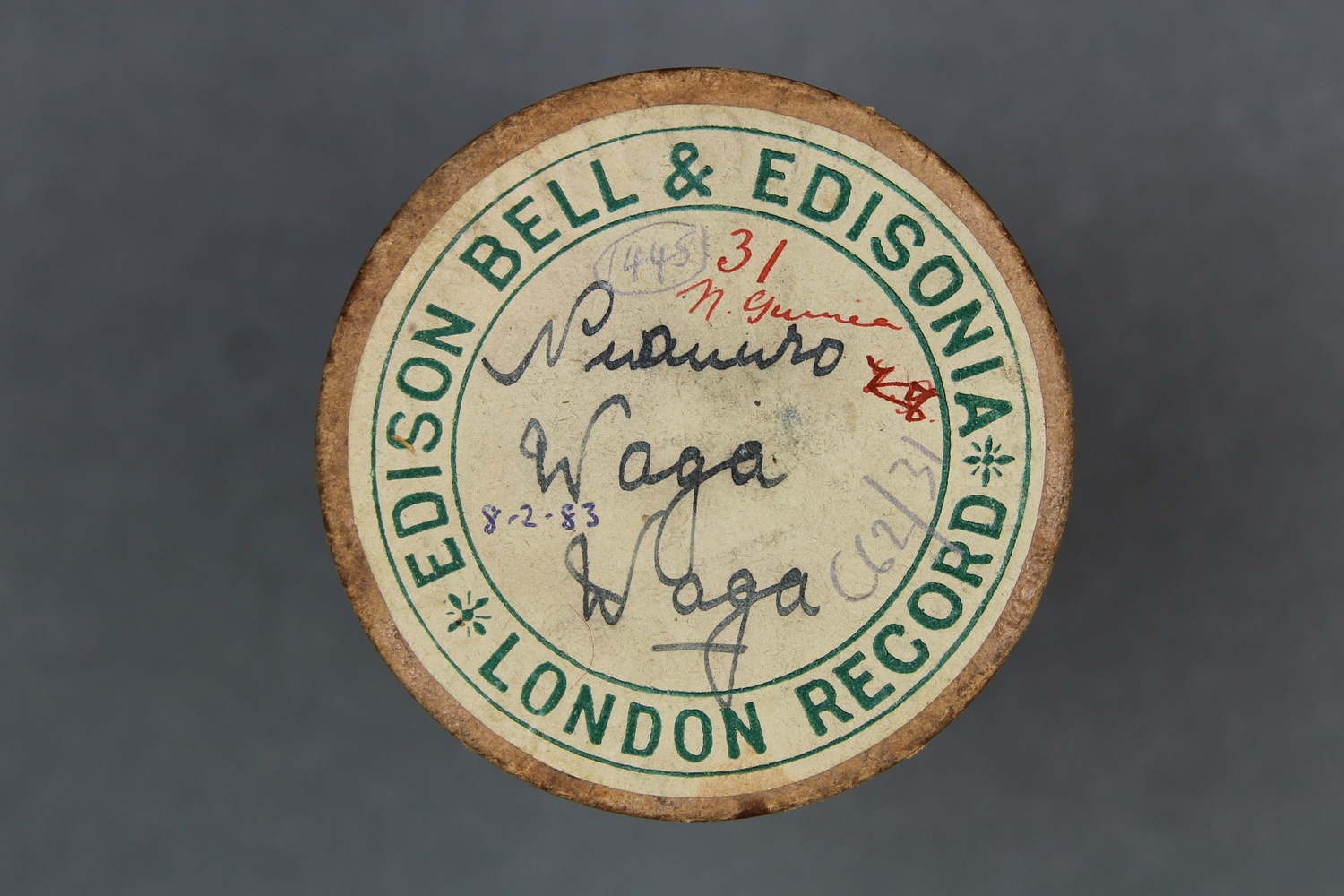      | This song is transcribed in Charles G. Seligmann, 'The Melanesians of British New Guinea', Cambridge University Press, 1910:587. | ||||||
| C62/1446 | Oge Oge Waga Waga | Unidentified (singer, male) | Waga Waga, Milne Bay, British New Guinea | October 1904 | 1. Announcement: "Oge Oge, a Waga Waga song." 2. Unaccompanied male vocal solo. A song whose meaning is not known. | Good quality recording. | Wagawaga | Field recordings | Seligman, Charles Gabriel | 3'22" | Daniels Ethnographical Expedition to New Guinea 1904 | Brown wax cylinder | Daniels Ethnographical Expedition to New Guinea 1904 Cylinder Collection (C62) | British Library | 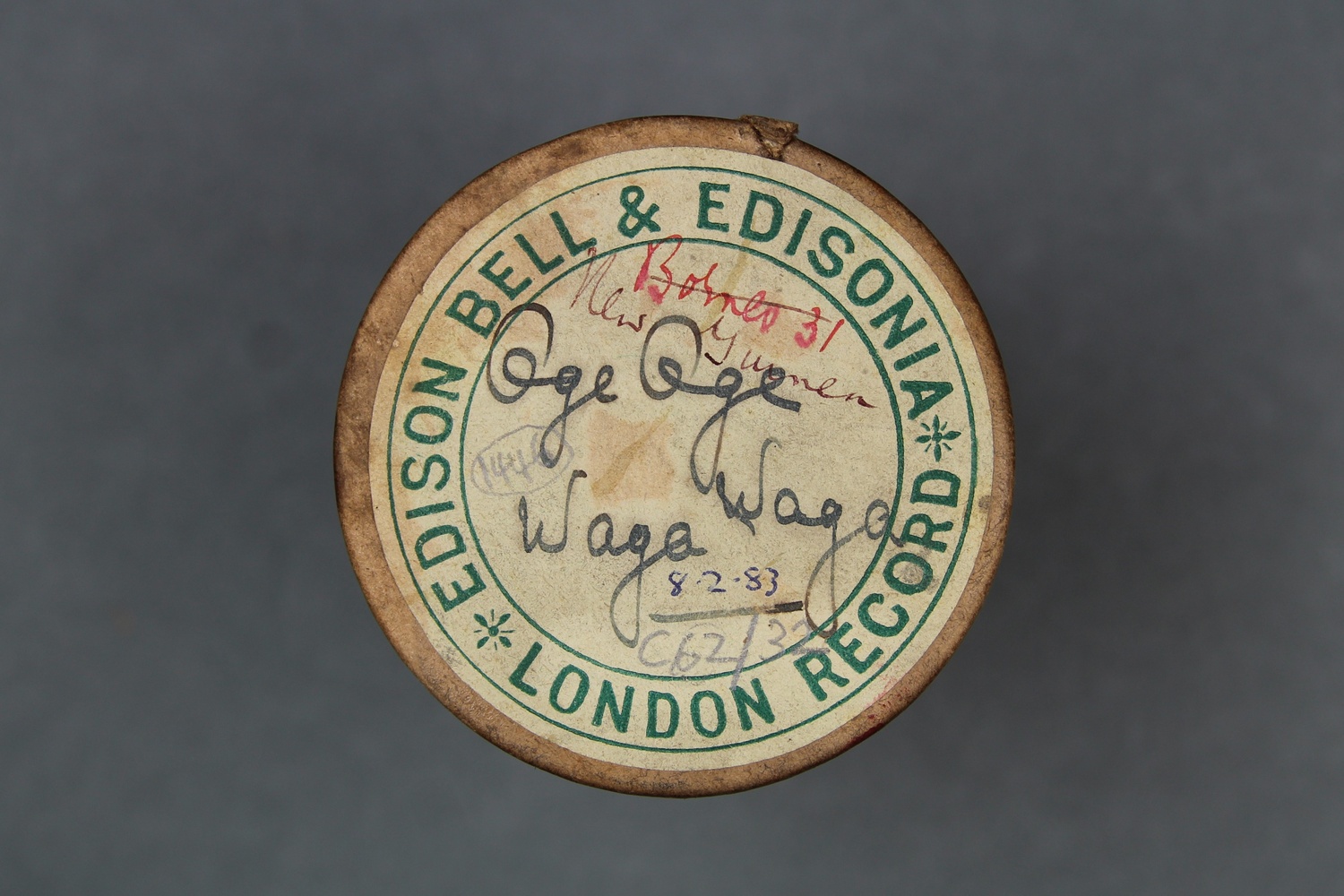      | This song is transcribed in Charles G. Seligmann, 'The Melanesians of British New Guinea', Cambridge University Press, 1910:587. | ||||||
| C62/1447 | Pediri Waga Waga | Unidentified (singer, male) | Waga Waga, Milne Bay, British New Guinea | October 1904 | 1. Announcement: "Pediri, a Waga Waga song.". 2. Unaccompanied male vocal solo. A song about a saling journey. | Reasonable quality recording but with surface noise. | Wagawaga | Field recordings | Seligman, Charles Gabriel | 2'28" | Daniels Ethnographical Expedition to New Guinea 1904 | Brown wax cylinder | Daniels Ethnographical Expedition to New Guinea 1904 Cylinder Collection (C62) | British Library | 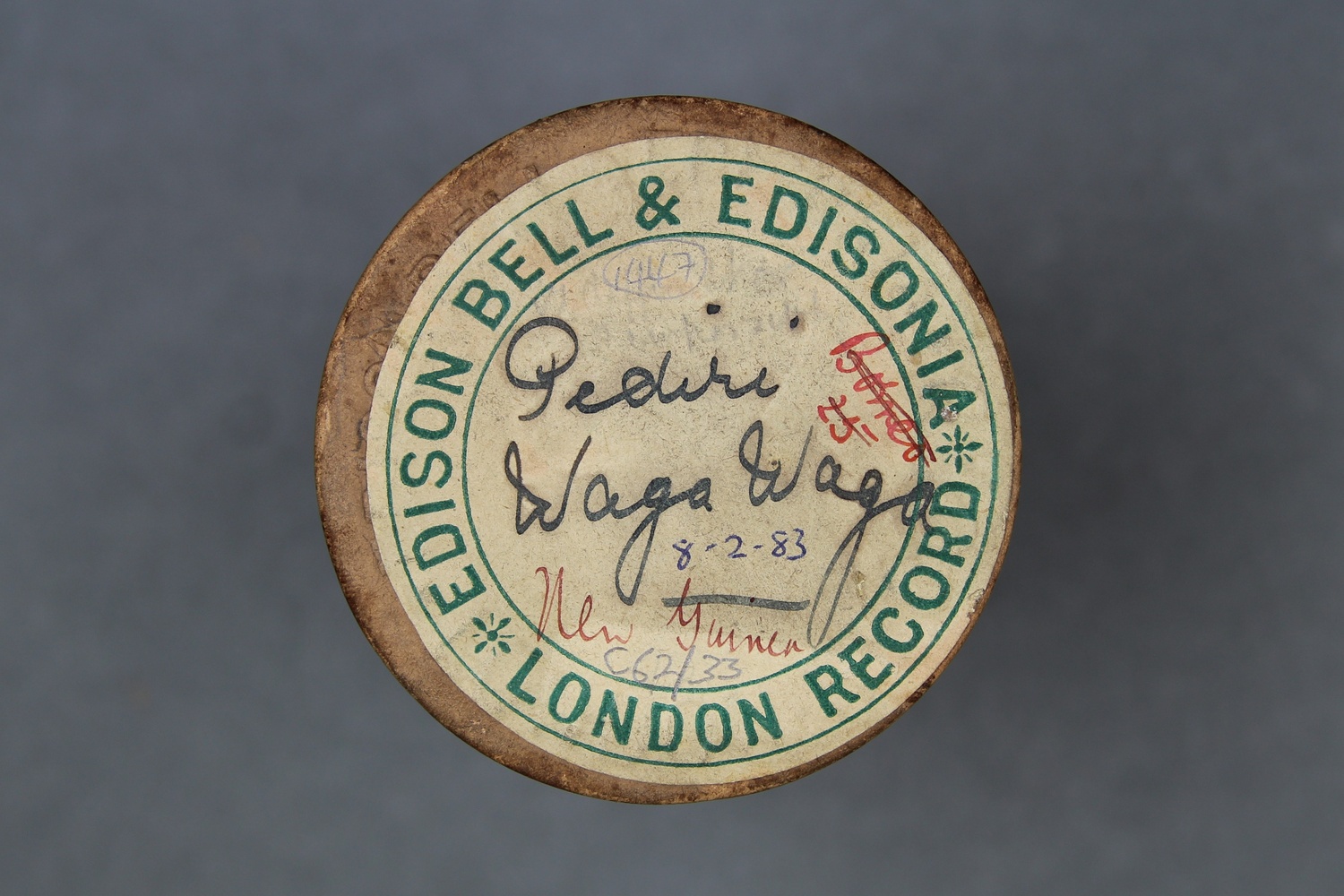      | This song is transcribed in Charles G. Seligmann, 'The Melanesians of British New Guinea', Cambridge University Press, 1910:586-587. | ||||||
| C62/1450 | Nuauuro B | Unidentified (singer, male) | Waga Waga, Milne Bay, British New Guinea | October 1904 | 1. Announcement: "Nuauro, a Waga Waga song." 2. Unaccompanied male vocal solo. The second part of the Nuauuro song. | Reasonable quality recording but with weak signal and surface noise. | Wagawaga | Field recordings | Seligman, Charles Gabriel | 3'26" | Daniels Ethnographical Expedition to New Guinea 1904 | Brown wax cylinder | Daniels Ethnographical Expedition to New Guinea 1904 Cylinder Collection (C62) | British Library | 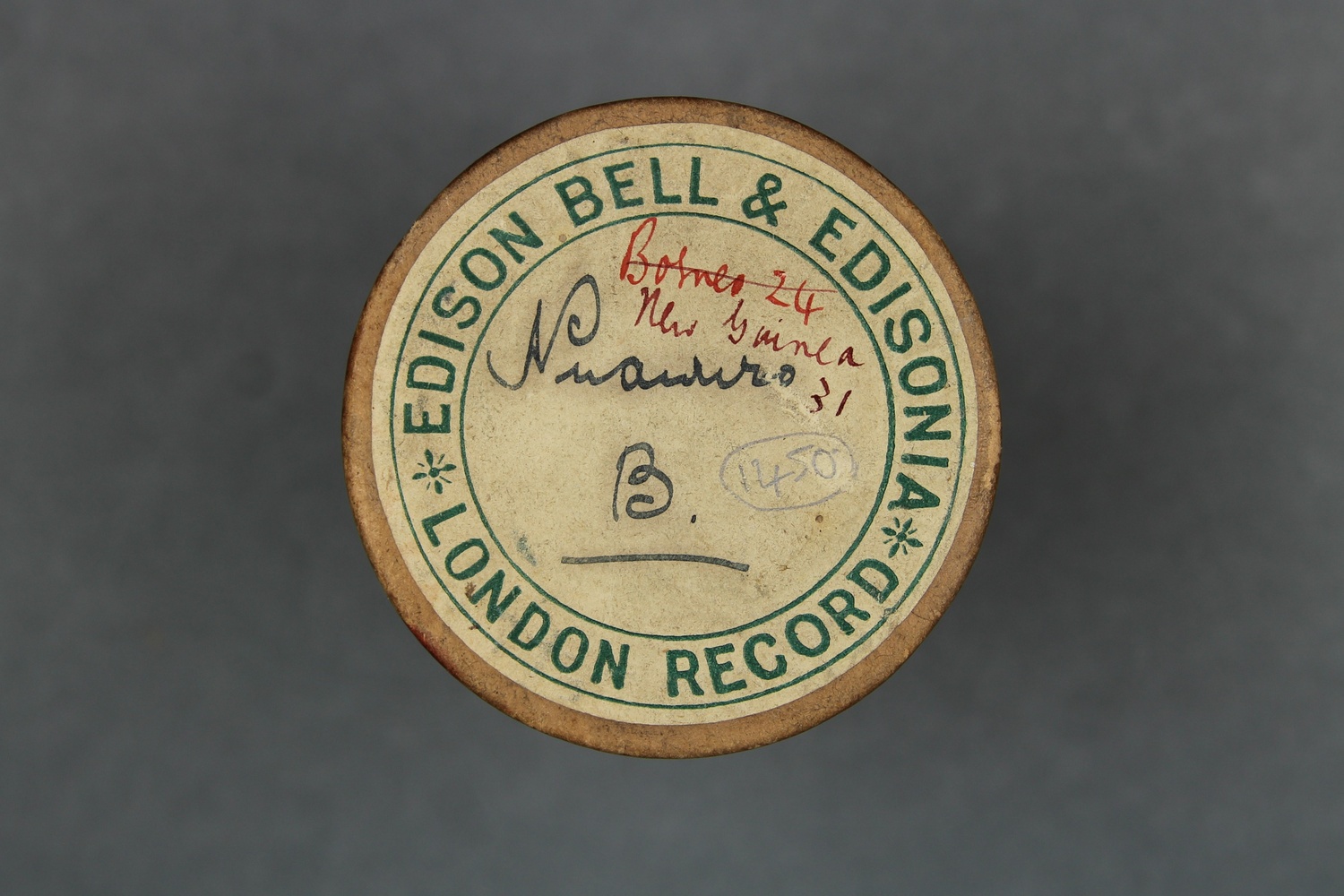      | This song is transcribed in Charles G. Seligmann, 'The Melanesians of British New Guinea', Cambridge University Press, 1910:587. |
These include all recordings identified as Roro, Mekeo, Mekeo/Roro, as well as unidentified recordings.


